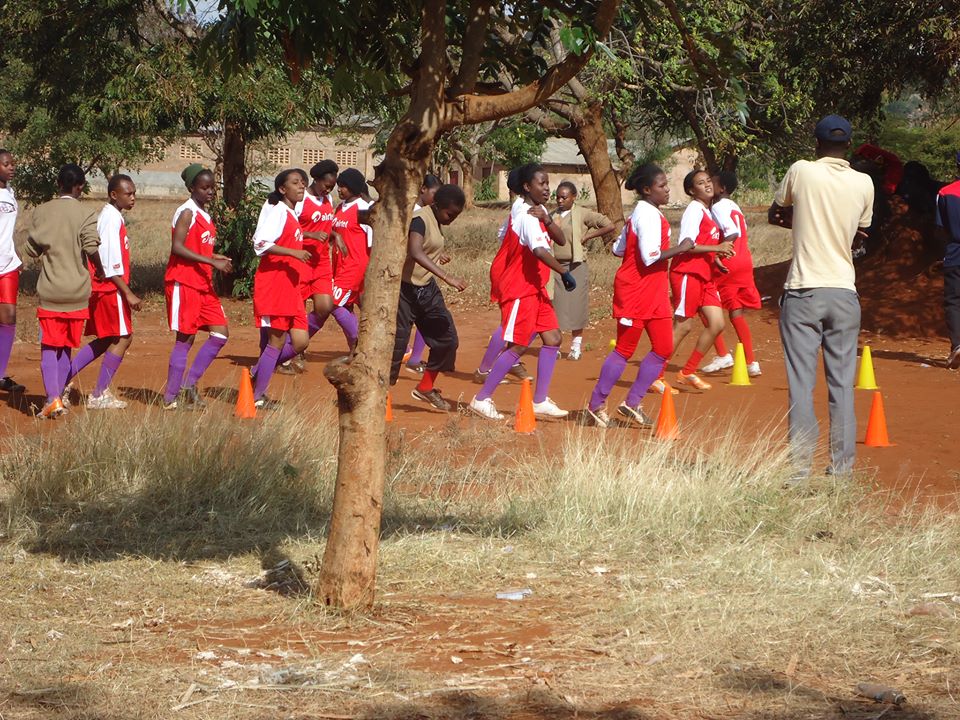Connect with us
Published
9 years agoon
By
Kulan Post
By: Mohamed Ali
From a distance, a crowd of students revel around a volleyball pitch, cheering their favourite team as they engage their opponents in a fierce challenge to win the ball.
On coming closer, no one hears their chant; only the sound made by their clapping hands could be heard. The excitement and enthusiasm in their faces is too much to ignore—welcome to Wajir School for the Deaf, a rare school that caters for a forgotten lot.
The school, which was established in 1995 as a small unit attached to Wajir Primary School with only six pupils, is now a fully-fledged learning institution with more than 108 students. It provides a conducive learning environment where children find fellow students they can easily relate with.
Apart from the normal school curriculum, the institution imparts the students with life skills that will enable them be independent adults capable of taking control of their life in future.
“A deaf child can do everything in the same manner a normal child can do. The only problem is their inability to hear,” Kheira Kassim, the school Headteacher, said, asserting that disability is not inability.
True to her words, in the year 2007 the school emerged the second best nationwide in the Kenya certificate of Primary Education (KCPE) exams among the deaf schools.
“If given chance, deaf children can succeed to their full potential. We should not close windows of opportunities for them because of their disability,” she said.
Recently, when this writer visited the school, the students were busy preparing for the inter-school ball-games. In one of the friendly matches played against Wajir Primary volleyball team, the special students were too strong for their opponent, beating them with an exuberant performance. Their rivals were not able to match their skillful execution of the ball coupled with the decisive blocks and the exquisite delivery of their shots.
Madam Kheira said there was a glaring lack of parental participation and involvement when it comes to the child`s development. “Some parents just dump their children in the school with no follow up on the child`s development”.
“Sometimes teachers are forced to look for the parents when the school breaks for the holiday,” she said.
She added that most parents confine their hearing-impaired children to the house whenever they sense a child has some form of disability instead of presenting them to the outside opportunities so as to get the necessary help to fit in the society.
Every year, the school embarks on a recruitment exercise to literally fetch out special children with hearing difficulties that have been abandoned in the villages
“We bring students from as far as Turantura and Admasajida to give them the opportunity to access the free primary education although some parents often resist the move,” she revealed.
Teachers at the school are often confronted with difficulties as some students have multiple disabilities hence require extra attention.
Said she, “The school has been forced to employ extra non-teaching staffs who work in shifts to cater for such students.”
“Dealing with students with special needs is a task that requires dexterity” she added.
The school, a one of its kind in the entire former North Eastern province and the Upper Eastern, operates with the mere support of the ministry of education and seasonal donors which is often overstretched and lacks the wherewithal to cater for the ever increasing needs of the students as they don’t pay cost-sharing fees unlike their counterparts in the mainstream primary schools.
Inadequate learning materials, resource constraints and lack of accessible health education information are other major challenges facing the institution.
“Our curriculum is totally different from the mainstream schools. Most of the books used are sign-language-based which are not locally available,” Madam Kheira said, adding that there was no conventional way of teaching such special students.
Most students drop out of school after successfully completing their primary education due to lack of a secondary school in the area. That hampers their access to higher education as the nearest school is located in Nyeri County.
In his speech while releasing last year`s KCSE results, education Cabinet Secretary, Jacob Kaimenyi stressed the need to give equal opportunity to access education to all members of the society including those with special needs.
“Through our increased support in this area, we have seen more students with special needs accessing secondary education and enrolling for the KCSE examination over the years”. He said.
The CS decried the low enrollment for national exams among the students with special disabilities.
“While my Ministry is committed to carry out the necessary capacity and infrastructure development in this sector, it remains the duty of education managers and other stakeholders to encourage and support parents and guardians to enable them to deal with the negative attitudes that some of the parents hold with respect to children with different kinds of disabilities and enroll them in specialized schools,” Kaimenyi said.


Werar formally hand over office ahead of Mohamed Abdi’s arrival tomorrow


Negotiated Democracy is heavily commercialised and might lose essence, ex-Wajir governor says


Businessman joins race to clinch Wajir West MP seat


Mohamed Abdi declares his name will be on the ballot despite pending impeachment case


Dr Hassan: I’m ready to give up my salary but please allow me to solve the health problem within three months


Renowned international journalist-cum-politician holds first rally since his endorsement
